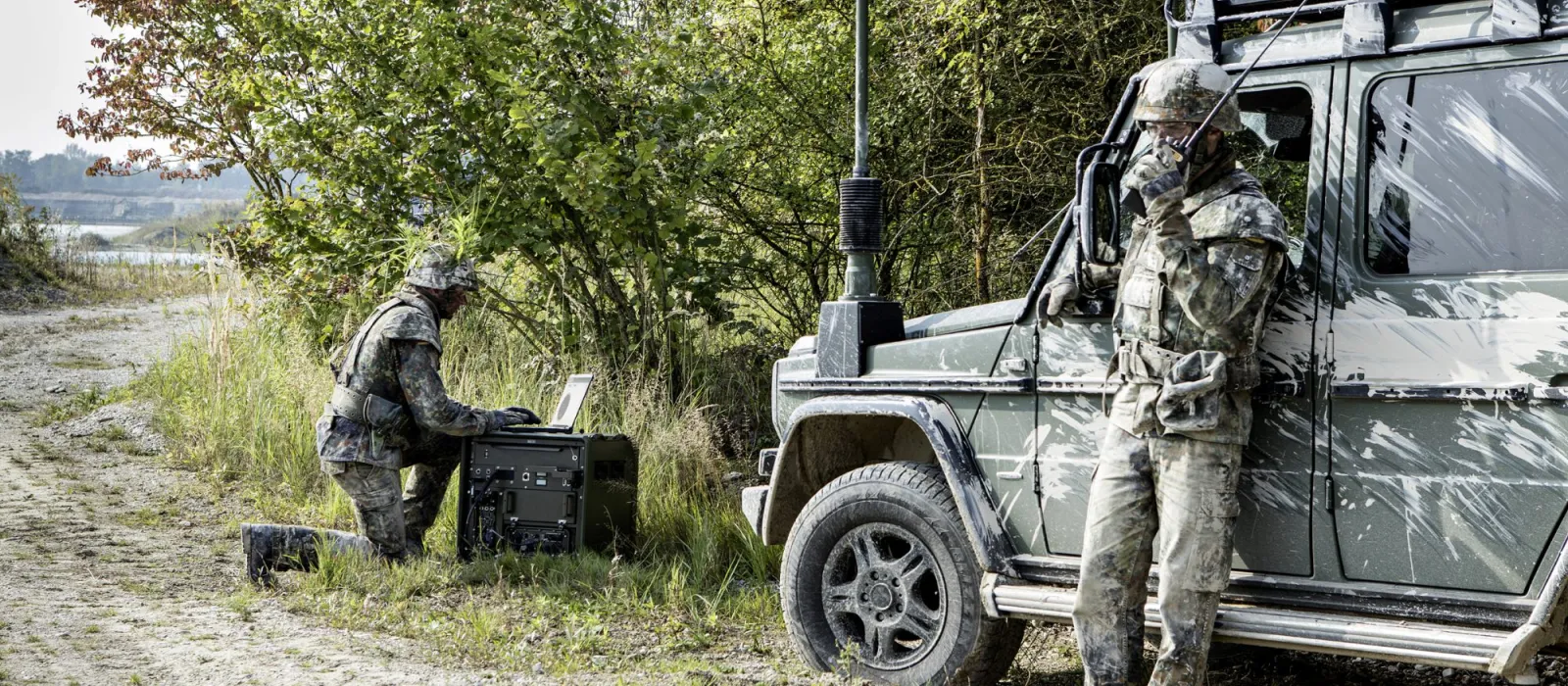ISO 2872 Impact Resistance of Packaging Testing
The ISO 2872 standard is designed to evaluate the impact resistance properties of packaging materials and their ability to withstand physical stress during transportation. This testing is crucial for ensuring that packaging can protect its contents under various environmental conditions, which is particularly important in military applications where durability and reliability are paramount.
In the context of the military sector, the ISO 2872 test provides a standardized approach to assess how packaging materials perform when subjected to sudden impacts. This is essential for safeguarding critical equipment and supplies that must endure harsh conditions during deployment or transportation. The results of this testing help ensure that packaging meets specified performance criteria and can be relied upon in real-world scenarios.
The process involves subjecting a sample of the packaging material to an impact force from a specified height using a drop weight. The test measures how well the packaging absorbs the impact energy, thereby protecting its contents. This is particularly important for military logistics where the integrity of the packaging can significantly affect operational readiness and mission success.
Understanding the implications of ISO 2872 testing allows stakeholders to make informed decisions regarding material selection and design optimization. For quality managers and compliance officers, this test ensures that packaging complies with international standards, thereby reducing legal risks and enhancing overall product reliability. R&D engineers benefit from this standardized approach as it provides consistent data for material development and process improvement.
For procurement teams, ISO 2872 testing helps identify reliable suppliers who can deliver packaging materials capable of meeting stringent operational requirements. By incorporating this test into their supplier evaluation criteria, organizations can ensure that they are procuring high-quality packaging solutions tailored to the specific needs of military operations.
Why It Matters
The importance of ISO 2872 impact resistance testing cannot be overstated. In a military environment, where supply chains can be disrupted and operational demands are high, reliable packaging is crucial. The test ensures that the packaging not only withstands the rigors of transportation but also provides adequate protection to the contents during storage and deployment.
One key aspect of this testing is its ability to simulate real-world conditions. By subjecting packaging materials to controlled impacts, testers can identify potential weaknesses or areas for improvement. This allows manufacturers and suppliers to refine their designs and materials to better meet the demands of military logistics.
The test also plays a vital role in ensuring compliance with international standards. The ISO 2872 standard is widely recognized across industries and countries, which means that successful completion of this test can enhance an organization's reputation and marketability. Compliance officers benefit from having such testing as part of their quality assurance processes.
R&D engineers find value in the standardized approach provided by ISO 2872. It allows for consistent testing across different materials and designs, facilitating comparisons that lead to innovations in packaging technology. This is especially important in the military sector where new materials and technologies are constantly being developed to meet evolving operational needs.
For procurement teams, the test serves as a benchmark for evaluating suppliers' capabilities. By specifying ISO 2872 compliance in their procurement criteria, organizations can ensure that they are selecting suppliers who have demonstrated the ability to deliver high-quality packaging materials and solutions.
Scope and Methodology
The scope of ISO 2872 impact resistance testing encompasses a wide range of packaging materials used in military applications, including but not limited to cardboard boxes, plastic crates, and metal containers. The primary objective is to evaluate the ability of these materials to absorb and dissipate impact energy without compromising the integrity of the packaging or its contents.
| Test Parameters | Description |
|---|---|
| Impact Force | The force applied to the sample during the drop test is typically specified in the standard, ensuring consistency across different tests. |
| Drop Height | The height from which the impact force is applied can vary depending on the material and packaging design. This parameter is crucial for simulating real-world conditions accurately. |
| Specimen Preparation | The sample must be prepared according to the standard, ensuring that it represents the actual packaging used in military operations. |
| Instrumentation | The test uses specialized equipment such as a drop tower or impact tester. These instruments provide precise control over the parameters and ensure accurate measurement of the results. |
The methodology involves carefully preparing the sample, setting up the testing apparatus, applying the specified impact force from the designated height, and recording the outcome. The test is typically repeated several times to achieve reliable data for analysis. The results are then evaluated against predefined acceptance criteria, which include assessing the degree of damage to the packaging and the condition of its contents.
International Acceptance and Recognition
- The ISO 2872 standard is recognized globally for its rigorous approach to evaluating impact resistance in packaging materials.
- Countries such as the United States, European Union members, and many others have adopted this standard due to its reliability and consistency.
- Many international organizations involved in military logistics and supply chain management require compliance with ISO 2872 for certification purposes.
- The standard is also used by insurance companies and regulatory bodies when assessing the safety and durability of packaging materials.
Organizations that comply with ISO 2872 are able to demonstrate their commitment to quality and reliability, which can be a significant advantage in competitive markets. Compliance enhances trust between suppliers and clients, reducing the risk of product damage during transportation and storage.





